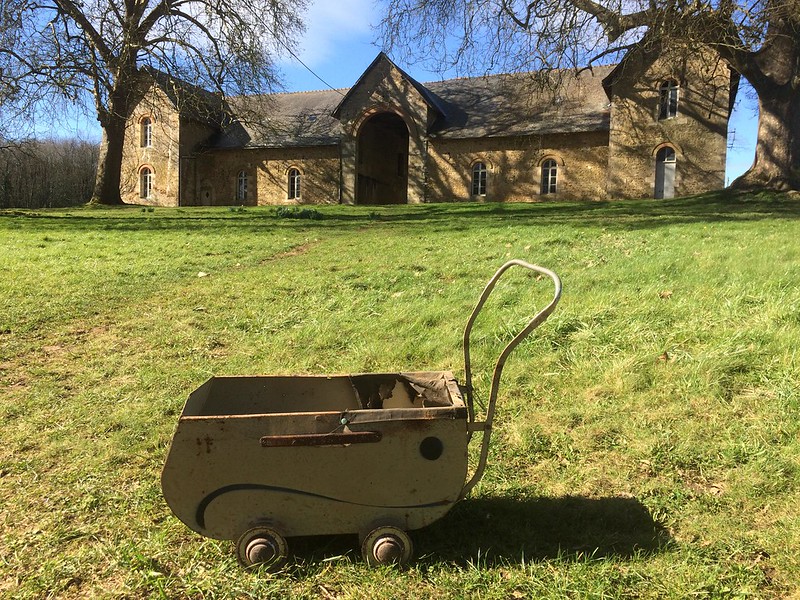Recently one of the questions that came my way via the website was from a person, who was attracted by meditation and the teaching of John Main and Laurence Freeman. He knew that John Main found this way of prayer in the writings of John Cassian in the 4th century and accepted that the Desert hermits meditated. But he could not find any evidence for this way of prayer in the Scriptures that he loved and had studied for many years.
He is right in that there isn’t a passage that states clearly that the meditation as practised in the desert was also a way of prayer the disciples used. But the Desert Fathers and Mothers, who went into the Desert – as Jesus had done – seeking silence and solitude, based their way of living and praying on His example and teaching. They would not have done anything in their life and prayer unless it was part of Jesus’ teaching. Tradition not individualism was the important aspect of life in those early centuries. All the essentials of contemplative prayer, to which meditation leads, we find brought out in Scripture: solitude, silence, stillness, alertness, repetition of a prayer or prayer phrase with faithful careful attention, thus leaving all other thoughts behind and staying in the present moment, leading to interiority and a sense of union.(See p.202-204 Jesus the Teacher Within)
We find these emphases also in the succinct advice of John Main: ‘Sit down. Sit still and upright. Close your eyes lightly. Sit relaxed but alert. Silently, interiorly begin to say a single word. We recommend the prayer phrase, Maranatha. Listen to it as you say it, gently but continuously. Do not think or imagine anything spiritual or otherwise. If thoughts and images come, these are distractions at the time of meditation, so keep returning to simply saying the word. Meditate twenty to thirty minutes each morning and evening.’
When Jesus was asked by his disciples how they should pray, he taught them what we now call the ‘Our Father’. In the original Aramaic, which was the common language in the Middle East at the time of Jesus, as Laurence Freeman brings out, “this prayer is a collection of short rhythmic phrases. The phrases would have been memorized and repeated frequently and interiorly.” (p.201)
The version we have now is a translation from the spoken Aramaic into Greek, then into Latin and finally into English. This series of translations has caused the loss of the rhythm and richness of meaning of the original Aramaic. But nevertheless the reciting of this prayer with full attention is very effective. “To pray the Our Father requires more than the mechanical repetition or chanting of the words. It requires mindfulness….it requires attention through a faithful repetition that leads to stillness and insight.” (p.202) Attention is the most important quality of prayer: “the setting in which Jesus taught this formula … emphasizes attention as the primary quality of all prayer.”
Laurence Freeman stresses that in Chapter Six of the gospel of Matthew “[Jesus’] teaching distils the essential elements of meditation. Firstly, he emphasises how prayer must be rooted in the sincerity of the True Self rather than in the ego-consciousness: ‘Be careful not to make a show of your religion before men; if you do, no rewards awaits you in your Father’s house in heaven.’…. [then he] recommends solitude and interiority, the silent intimacy and the hidden mystery of prayer: ‘When you pray, go into a room by yourself, shut the door and pray to the Father who is there in the secret place; and your Father who sees what is secret will reward you.’(p.202)
This saying always puzzled me as I knew that an own room was something only the very rich had in Jesus’ time. But then I read John Cassian’s explanation: ‘We pray in our room when we withdraw our hearts completely from the clatter of every thought and concern and disclose our prayers to the Lord in secret, as it were intimately. We pray with the door shut when, with closed lips and in total silence, we pray to the searcher not of voices but of hearts’ and it all made sense, as a description of meditation, contemplative prayer.
When we repeat the Lord’s Prayer we do use many words and yet it is effective. Elsewhere Jesus emphasises verbal economy in prayer: ‘We should not go ‘babbling’ on like the heathen who think the more they say the more likely they are to be heard.’ (Matt 6:7/8) We know from Cassian that the Desert hermits followed this advice and used a phrase from Scripture as their focus, which he called a ‘formula’. John Main simplified this even more and chose ‘Maranatha’, as our prayer word – it is one of the first Christian prayers and does not lead into thought through association.
But more important than all the words about contemplative prayer is the actual commitment to the practice and the ensuing transformation: “If prayer …does not change the one praying …something essential is missing.” (p.205)





